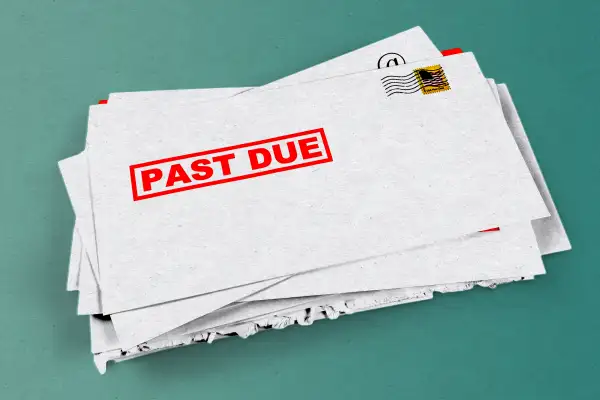How to Negotiate with Debt Collectors

If you have past-due debt that you’re struggling to pay off, you might want to learn how to negotiate with your creditors. While there is never a guarantee that they will agree, if some do, it could help free you from debt faster and avoid further damage to your credit.
Keep reading for a step-by-step breakdown of how to negotiate with debt collectors and everything else you need to know about dealing with a debt in collection.
Table of Contents
- Understand how debt collection agencies work
- Ask the debt collection agency to validate your debt
- Come up with a reasonable repayment plan or settlement proposal
- Make sure all agreements are set in writing
- Keep calm, be patient and be careful about what you say
- How to negotiate with debt collectors FAQs
How to negotiate with debt collectors
In order to negotiate with debt collectors, you should keep several things in mind.
Understand how debt collection agencies work
If you’re trying to negotiate with debt collectors, it’s important to understand how they work first.
Original creditors — say, a credit card or utilities company — sell their delinquent accounts to debt collection agencies to get “bad debt” off their books and access the related tax benefits of this type of expense.
Debt collection agencies buy the debt for pennies on the dollar so, if your original debt was $700, they may have bought it for $200 or less. This means there could be wiggle room when it comes to negotiating a settlement.
Keep in mind that having a debt sent to collections will negatively affect your credit score and this mark will stay in your credit report for seven years. Note, however, that these negative marks will lose some of their impact on your credit score as time goes on. When calculating your credit score, bureaus give more recent information greater importance.
Ask the debt collection agency to validate your debt
It’s tempting to comply with a debt collector’s request for money right away, but take some time to get your ducks in a row. You have the right to get all the information about the debt.
By law, the debt collection agency must verify details about the original debt, such as the name and address of the original creditor, amount, date incurred and more.
If, after analyzing the details of the debt, you don’t believe it’s yours, you have up to 30 days to dispute it. While the collector is confirming the validity of the debt, they can’t engage in any collection activities. If the debt can’t be verified, the collection agency has to stop collection activities and remove it from your credit report.
Come up with a reasonable repayment plan or settlement proposal
If it turns out that the debt is valid, you must start planning to pay it off. However, it is possible to get them to settle for a partial payment, depending on the debt collector.
When coming up with a proposal, choose an amount that makes sense for your budget.
Consider the following things:
- Decide how much you can pay: Consider your current income, debt and other obligations. Make sure to leave some cushion in your remaining income for emergencies. You want to ensure you don’t pay more than you can afford.
- Decide how you want to pay it: You can make a lump sum payment or propose smaller monthly payments.
It might be a good idea to use a credit counselor to help create a debt management plan. Credit counseling is free through non-profit organizations. You can also look into credit repair companies.
It’s important to remember though that debt has a statute of limitations and these vary by state. Legitimate debt collectors should not pursue debt past this date, but some will. It’s important to find out the statute of limitations for your particular state before you pay the debt as, if the debt is older, making a payment can restart the clock.
Make sure all agreements are set in writing
Before you think your arrangement is set in stone and you begin making payments, make sure the debt collector puts your payment arrangement in writing on official company letterhead. That way, if they deviate from the agreement or claim to have no record of it, you have all your bases covered.
If some time passes and you still haven’t received a letter from the debt collection agency, you should reach out to them. Be persistent until you receive the letter on official company letterhead.
Keep calm, be patient and be careful about what you say
Although dealing with debt and debt collectors can add stress to your life, do your best to stay calm and level-headed. Even if a bill collector is rude or becomes belligerent, keep your cool. Be polite and keep records of the dates and times you communicate with the debt collector.
What not to say to debt collectors
Avoid divulging too much information about your personal and financial situation when you talk to debt collectors. As all collectors inform you in their communications, any information you give them can be recorded and used to help collect your debt. Provide enough information to support your negotiations and nothing more.
Be especially careful if you receive a call from a debt collector and are unsure if they are a legitimate company or a scam. According to the Consumer Financial Protection Bureau (CFPB), never share your full social security number, bank account information, other financial account information or credit card numbers with a debt collector if you aren’t sure.



